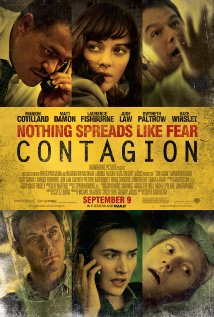

Mild Spoilers
Hans Zimmer has composed an unrelenting score that is being blasted in movie theaters across the world right now. It is not bad music by any means, but why it is launched like an assault at the eardrums I cannot fathom. Underneath this score, if one listens carefully, one can hear a movie playing, accompanied by corresponding images on a screen. The movie is called The Dark Knight Rises, and it is considered a part of Christopher Nolan’s Batman trilogy on the grounds that Batman makes a couple brief appearances in it.
It takes place eight years after the previous installment. Batman, erroneously believed to be the murderer of Harvey Dent, has disappeared, and his alter ego, billionaire Bruce Wayne, now lives as a recluse. A new super villain, Bane (Tom Hardy), has emerged to wreak havoc in Gotham City. Catwoman (Anne Hathaway) is also on the prowl, though whether she is a villain or heroine is less certain until the end of the film.
Bruce Wayne is moved to return the Caped Crusader to the streets of Gotham City as the Bane menace grows. He is pushed to this decision by a police officer with amazing faith in his pure hunch that Bruce Wayne is somehow connected to Batman, as well as the theft of his belongings and personal information by Catwoman, who was working for him as a maid in order to position herself for the strike, and who was helped along by an assistant we never really get to know, but both of them are radical egalitarians with some connection to Bane, who it turns out was behind the guy who hired Catwoman to burgle Bruce Wayne because he wants the information to set Wayne up so that he can financially ruin Wayne so that his people can take over Wayne Enterprises in the ensuing bankruptcy so that he, because he knows who Batman is, can get access to Batman’s arsenal so he can use it to further his plans to…
You know, it’s actually a little complicated. Much like its predecessor. Indeed, the movie shares all of its predecessor’s flaws but got shortchanged on the strengths.
[continue reading…]
Help Promote Prometheus Unbound by Sharing this Post

Steven Soderbergh
 Steven Soderbergh directs a cast full of A-list Hollywood celebrities in the recently released Contagion. Playing into fears that to some extent are natural, while at the same time too often stoked of late by government fearmongers, it tells the story of a new virus that spreads quickly and wreaks havoc on the human race. Some very recognizable faces of the Hollywood elite turn splotchy and froth at the mouth.
Steven Soderbergh directs a cast full of A-list Hollywood celebrities in the recently released Contagion. Playing into fears that to some extent are natural, while at the same time too often stoked of late by government fearmongers, it tells the story of a new virus that spreads quickly and wreaks havoc on the human race. Some very recognizable faces of the Hollywood elite turn splotchy and froth at the mouth.
Comparisons will be made to Wolfgang Petersen’s Outbreak, but beyond the subject matter and big name actors, they do not much resemble one another. Contagion is either a well-researched and realistic movie about the response to a worldwide infectious disease — especially realistic at the level of government agencies like WHO and CDC — a carefully crafted fraud that makes you think it is, or a mix of the two. There are multiple storylines and it feels, at times, like a documentary. Outbreak is more fanciful and less earnest, investing little effort and less concern in realism but a good deal more in story. All things considered, I would say that Outbreak is the superior work, but Contagion is good in every aspect in which — one gets the feeling — it bothered to put in some elbow grease and is worth a viewing at the theater.
Where did it put this elbow grease? In the shots, in the blocking, in the photography, in the acting, in the editing — everywhere but the script. As one would expect from a Soderbergh film, it is well shot. Everything around the story works at a higher level than what you usually find in theaters nowadays. It has a good solid skeleton, healthy skin, strong muscles, even a brain, but it lacks a heart.
Perhaps it is a bit unfair to say that no elbow grease was spent on the script. I do not mean to give the impression that the screenwriter was incompetent. It was, as I said, either a well-researched flick or a good facsimile, either of which takes some work and skill. However, the type of story it tells, and the time it has to tell it, limit how emotionally invested we can become in the characters, which in turn limits how engrossed we can be in the action, the obstacles, and the resolution.
[continue reading…]
Help Promote Prometheus Unbound by Sharing this Post




 Steven Soderbergh
Steven Soderbergh






